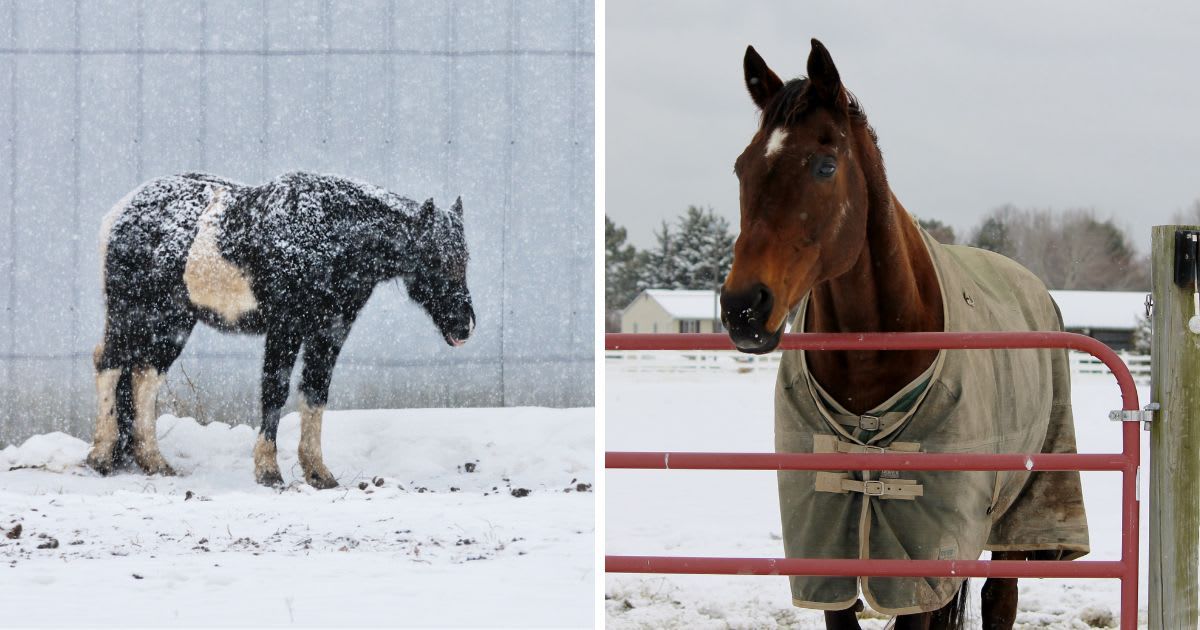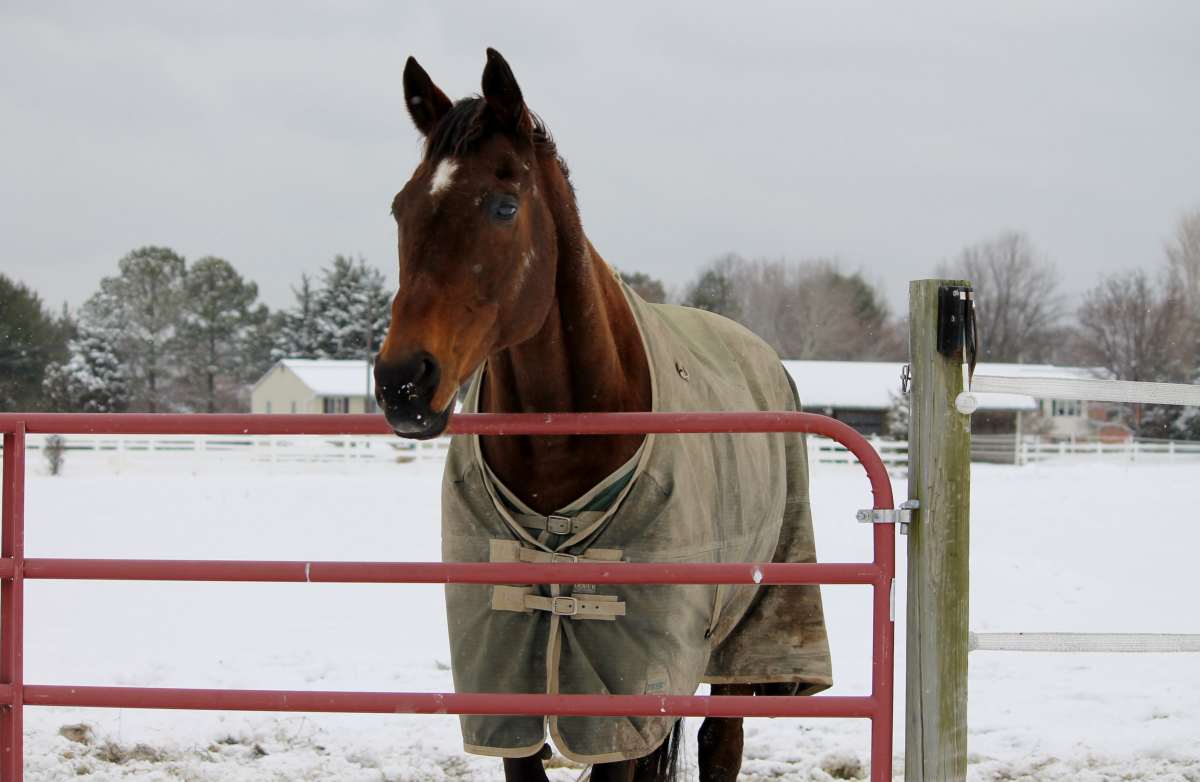Shivering horse refuses to be covered by a blanket. His PTSD has the internet crying over 'inattentive owners'

Blanketing a horse is a complex decision, since horses can develop severe trauma if it's left longer than required. The owners and caretakers are often baffled about whether to blanket their horse or not, as this can quickly become an act of invasion for the animal. A recent Instagram video showed that, as a trauma response from two years ago, the horse, Calavera, is now petrified of wearing a blanket. The video appeared on his sibling, Lugos’s account (@lugosthepalomino on Instagram), where it has received 13.5 million views so far.
View this post on Instagram
It was originally posted around two years ago. However, the video made its way back to Lugo’s feed only to remind the audience of the possible apprehensions that the horse might face if the blanket is left on their body for more time than necessary. During the 2023 winter, Calavera was covered with a blanket to protect him from the harsh, bleak weather. However, his owner forgot to remove the blanket even when the weather became tolerable. It was left on from early “winter/end of fall to late spring summer," when the weather was 60 degrees Fahrenheit, leading to a burnout caused by the accumulation of excess heat in his body. When the blanket was finally removed, Calavera realized that he had lost all his natural ability to defend his body against cold weather.
View this post on Instagram
Horses are naturally warm-blooded animals. The hair on their body protects them from the rainy and winter seasons. According to a study conducted by researchers of the University of Kentucky, horses have “well-developed insulation” to protect themselves from cold weather. Their coat (fur), subcutaneous fat, muscle, and digestive system help in retaining heat in their body. Only when the temperature dips below 41 degrees Fahrenheit do they need external protection in the form of a blanket/cover/sheet. The research also noted that keeping a blanket on from December to April is not acceptable, as the horses might develop skin problems, or in rainy seasons, get drenched in water, and in some cases. This error can turn catastrophic if left unattended for too long.
View this post on Instagram
Calavera’s unwillingness to wear a blanket was a trauma response from his previous experience. The horse had suffered a lot and was now afraid of wearing a blanket even when he was losing weight due to the cold weather. The study mentioned that blanketing is a dynamic process, and temperature is not the only thing to be considered. It is a daily commitment. The blanket needs to be changed daily for the inspection of diseases or possible skin infections. Additionally, every horse is different, and depending on their weight and the size of their blood vessels, their need to be covered also differs. One solution doesn't fit all here, which makes the process complex.

Being a pet animal domesticated on a farm, Calavera was a well-tamed horse. He communicated with his owner calmly and politely indicated his unwillingness to wear a blanket. Noticing his trauma response and realizing where it was coming from, the boy respected his boundary and agreed not to cover him. People online hailed the owner’s kind act of respecting the horse’s choice. “Not me tearing up. This healed a part of me that felt silenced all my childhood. Thank you for respecting boundaries that you may never fully understand. Thank you for not making the horse feel “less than” for having this boundary. Thank you for not trying to change him,” said @mylife.inthesunshine_. Calavera's extreme protective instincts were active only because of a traumatic past. Although he now wears a blanket, it took his owners two winters to gain his trust back.